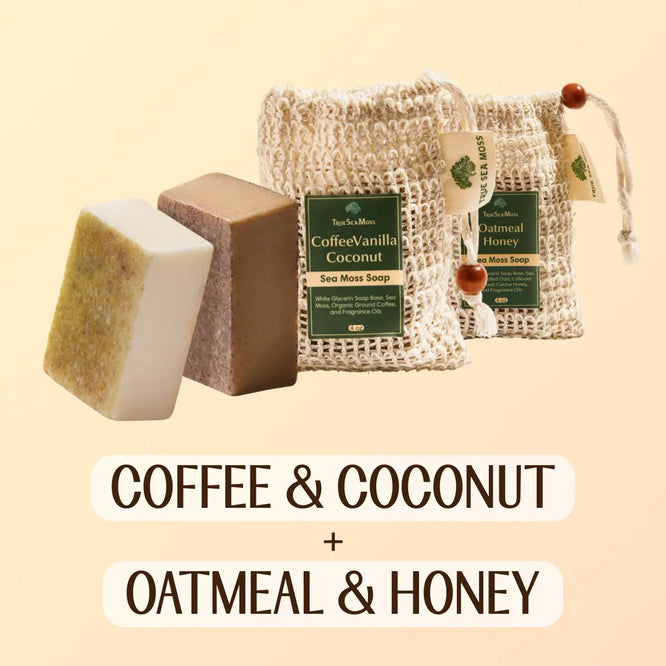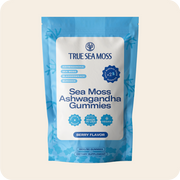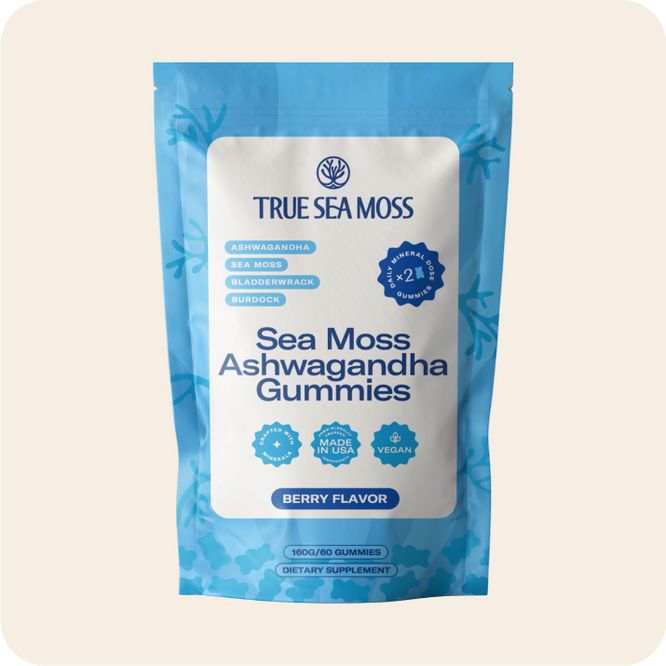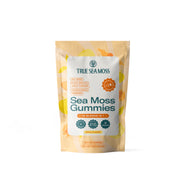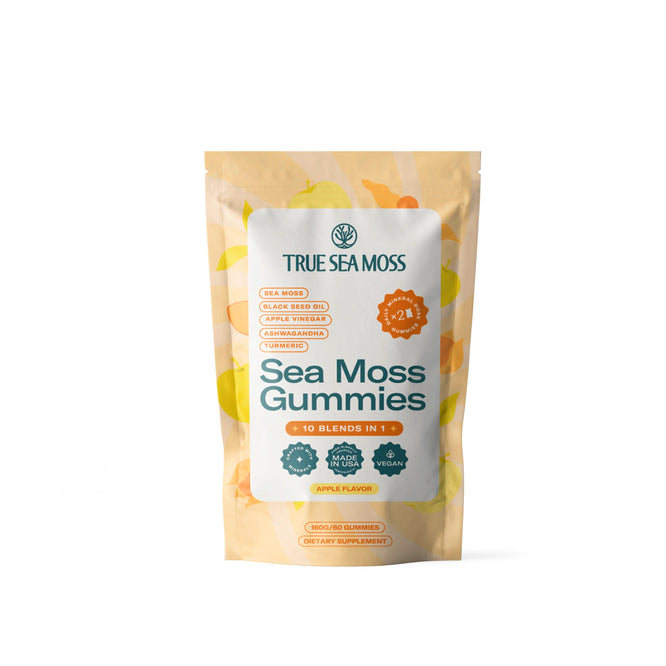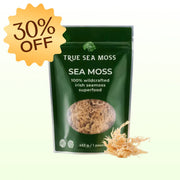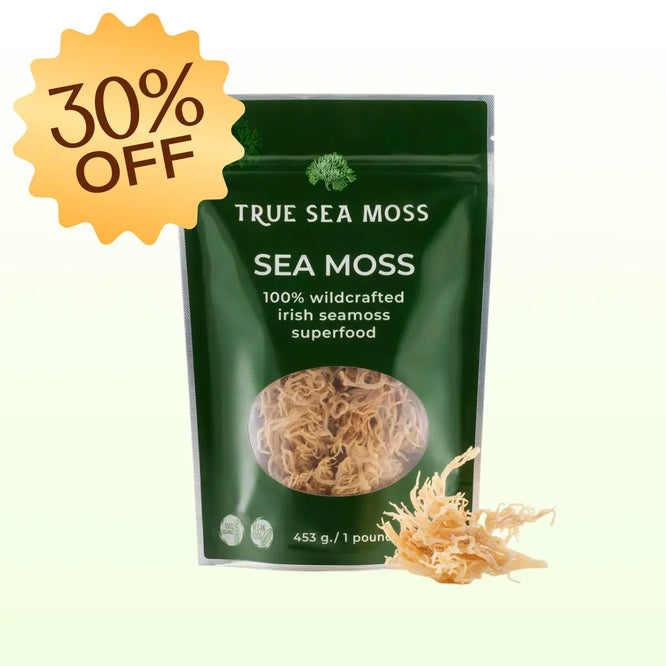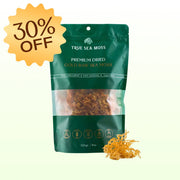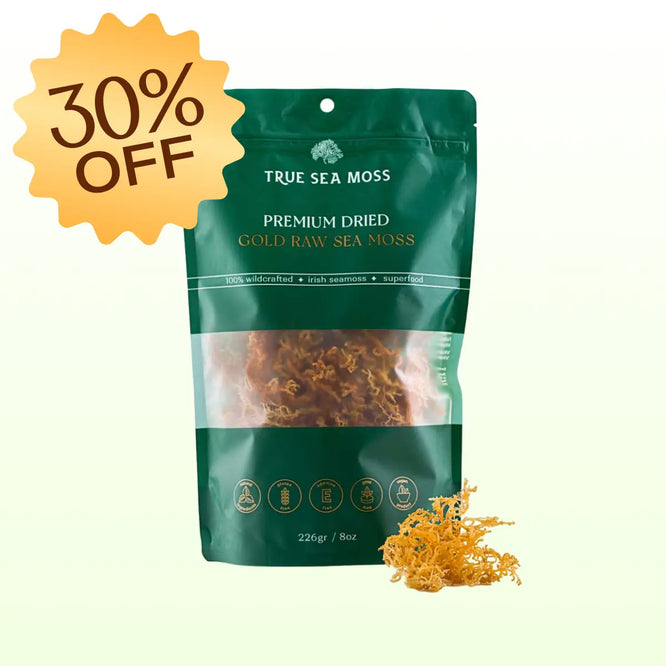Is There Iron In Sea Moss And Why Do You Need It?

Reviewed by registered dietitian nutritionist Mariya Pastukhova, bachelor of science in nutrition and dietetics, New York, US
H
ave you ever experienced a long stressful day, when your head is cracking from pressure?
We know you have. And that you are too busy sometimes to grab your lunch — we also know that.
Skipping your meals or simply not having enough Ferrous sulfate — the Iron mineral — in your diet may result in its deficit. It is followed by decreased energy, anemia, heart issues, jumpiness, weak nails and hair, acne, poor sleep, and regular dizziness.
With an Iron deficiency you can’t focus on your daily tasks, are inclined to forget things easily, and are constantly and inevitably exhausted.
If you are too swamped to prepare meals for yourself, you can’t eat Iron-rich animal products, or simply have no idea how to improve your Iron deficiency — our True Sea Moss team is excited to give you Irish moss! It’s a vitamin-and-mineral-rich algae and is one of the highest sources of Iron that you can add to your nutrition or simply snack with.
We are going to guide you through how much Iron is in sea moss and explain why you should pay more attention to having enough Ferrous sulfate in your nutrition.
How much Iron does sea moss have?
F
irst and foremost, does sea moss have Iron in it? Is it the same Iron that, for example, is sold in supplements in your local drugstore?
The answer is yes.
There are two types of Iron present in foods: heme Iron from animal sources such as meat, fish, and poultry, and non-heme iron, which comes from sea moss, lentils, beans, tofu, and nuts.
Sea moss is rich in non-heme Iron which makes it a great supplement option for vegans and vegetarians and vegans.
But how much Iron does sea moss have? According to the U.S. Department of Agriculture(https://fdc.nal.usda.gov/fdc-app.html#/food-details/168456/nutrients), there are 8.9 mg of Iron per 100 grams of alga.
To compare, there is a table of the most Iron-rich foods and their Ferrous sulfate content per 100 grams of each product:
| Foods | Ferrous sulfate per 100 grams |
|---|---|
| Irish moss (Chondrus crispus)(1) | 8.9 mg |
| Shellfish(4) | 3 mg |
| Spinach(5) | 2.7 mg |
| Liver and beef(6) | 6.5 mg |
| Chickpeas, lentils, beans(7) | 6.2 mg |
According to the National Institute of Health, the recommended dose of Iron per day for male and female users from 19 to 51 years old(2) is 8 and 18 mg(2) respectively. On the other hand, the recommended daily serving of True Sea Moss gel is two tablespoons (10 mg)(1).
The sea moss Iron content is 0.89 mg per two tablespoons, which is far from the recommended 8 and 18 mg advocated per day. Hence, Irish sea moss gel can be taken for a very prolonged time along with your additional Ferrous sulfate supplements.
6 essential functions of Iron in your body
Iron is an essential element for your blood cell formation. Besides that, there are other advantages of eating enough Ferrous sulfate throughout the day.
Take a look at these six functions(3) of Ferrous sulfate in your body:

✔️Oxygen transport. Iron is essential for the production of hemoglobin, which carries oxygen to body tissues, aiding in energy production and overall vitality
✔️Brain function. Ferrous sulfate supports cognitive function by ensuring an adequate oxygen supply to the brain, improving concentration and memory.
✔️ Immune system. Iron plays a role in immune function, helping the body combat infections and maintain a strong defense against illnesses.
✔️
Energy metabolism. This element is a key component of enzymes involved in energy production, helping to prevent fatigue and maintain stamina.
✔️ Healthy skin and hair. Iron promotes healthy skin, hair, and nails by supporting cell growth and repair.
✔️Anemia-prevention. Sufficient Ferrous sulfate intake prevents anemia, which can lead to fatigue, weakness, and other health issues.
Irish sea moss is packed with antioxidants, minerals, vitamins, probiotics, and fatty acids. However, since Iron in sea moss won’t be enough for your recommended daily use, our team strongly advises adding more Ferrous sulfate to your ration through balanced nutrition or additional supplements.
To sum up
Iron is one of the most vital elements for your bodily functions. Irish sea moss is packed with numerous elements including Iron, and it has been seen to improve overall health and even cushion medical conditions for many of our customers.
The answer to the question of how much Iron is in sea moss is only 0.89 mg per two tablespoons, which is not enough for your daily dose.
We recommend taking Irish sea moss gel for health, skin and hair well-being, focus, immunity, and energy, along with a balanced diet and additional Iron supplements.
You deserve to be healthy! Iron yourself up with our True Sea Moss gels and capsules, available in various forms and flavors in our shop.
*We recommend that you consult with your healthcare provider to regulate the dose of iodine applicable to you, before taking Irish sea moss supplements.
Want To Receive More Information?
Follow us to receive the latest update on our healthy experience



